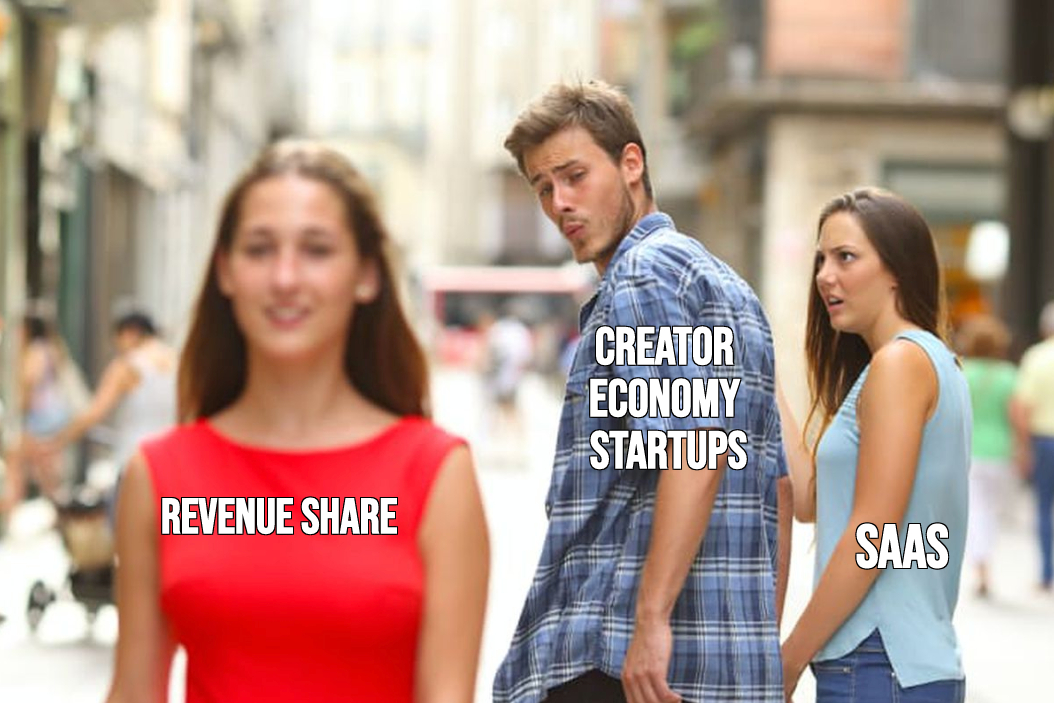
Timing the Market, Web3 Justice, & How to Launch a Physical Product
Here’s everything we published this week.
May 21, 2022 · Updated January 25, 2026
Knowledge Partner: McKinsey & Company
Digital transformation on the CEO agenda. What does a successful digital transformation look like? Get up to date on what CEOs and other leaders should know as they embark on the journey, including metrics that matter, common obstacles and how to navigate them, opportunities in tech talent, and more. Don’t miss it.
Happy Sunday!
Another busy week for tech is in the books! Stocks are officially in a bear market, but it’s not all doom and gloom: the DOJ has revised its policy regarding white-hat hackers and hey, we may be on our way to fusion energy. Pretty cool!
This week at Every, we’ve got a deep dive on what it takes to launch a physical product, advice for startups ahead of the coming creator economy winter, a proposed justice framework for web3, and look at one investor’s (seemingly paradoxical) advice on how to time the market. Plus, a review of a new speculative thriller we think Every readers will enjoy.
Here we go!
So You Want to Launch a Physical Product
Ajay Mehta / Every
A few years back, Ajay Mehta decided to quit his day job in tech and go all in on building and selling physical products. Since then, he’s launched not one, but two successful physical product brands: Birthdate Candles and Therapy Notebooks.
In this post, Ajay takes us through his answer to the age-old question: Should I launch a physical product? His answer: sure—but the economics of physical products mean that you need to have a pretty good idea that your product is going to make money before you make the leap. Ajay’s post outlines his advice on doing that diligence, including: think distribution-first, don’t be bashful with price, and probably don’t make your product yourself.
How Startups Can Survive the Creator Economy Winter
Evan Armstrong / Napkin Math
There’s a cold snap coming for the creator economy. Interest rates are up, multiples are down, and startups in the space need to get really disciplined about their business model if they want to come out on the other side.
Evan’s been doing a lot of talking with builders, creators, and investors in the space, and he’s got a recommendation for what creator startups can do to turn themselves into lean, mean downturn surviving machines. It comes down to one question: What are you doing to earn revenue share?
A Theory of Justice for Web3
Li Jin & Katie Parrott / Means of Creation
At the heart of the web3 movement is a promise: that it’s a chance to build, not just a different internet, but a fairer internet. But in order to make good on that promise, the ecosystem needs shared principles for what a fairer internet is.
In this piece, Li and Katie use the work of philosopher John Rawls to lay out one version of what those shared principles might look like. Specifically, they consider how Rawls’s concept of the difference principle—the idea that inequalities in society should ultimately be to the benefit of the least well-off—could result in a fairer, more equitable internet.
How to Time the Market (Or Not)
Nathan Baschez / Divinations
Ironically for a guy who titled his book Mastering the Market Cycle, investor and Oaktree Capital co-founder Howard Marks doesn’t believe in predictions. But he does believe in timing the market. If you think that sounds like a contradiction, you’re not alone.
This week on Divinations, Nathan digs into Marks’s book on a quest to resolve the paradox. His takeaway: Timing the market is not about buying at the top and selling at the bottom. It’s about buying assets when you believe they’re undervalued, and selling them when you think they’re overvalued. In other words: stop trying to predict what will happen tomorrow and focus on understanding what’s happening today
Paid subscribers can read Nathan’s chapter-by-chapter summary of Mastering the Market Cycle here.
Book Review: Reap3r
A new speculative thriller by Eliot Peper
Reviewed by Nathan Baschez
In the rationalist community there is a longstanding debate over the risks and possibilities of prediction markets. On the plus side, prediction markets could create financial incentives and mechanisms to aggregate information in a highly accurate and unbiased manner, which could be useful to policymakers. But then again, prediction markets could come with risks. Say, for example, there’s a prediction market on the outcome of an election. Bad actors might place a large bet on a candidate losing, then assassinate them for profit. It’s at this point of the discussion where proponents of prediction markets usually point out that the stock market is basically a prediction market, and we don’t see CEOs getting assasinated all the time.
Or do we?
Eliot Peper’s new novel, Reap3r, is a speculative thriller set in a near future world where violence and capitalism go hand-in-hand. On the surface, you could read it like a fun story about a villainous billionaire investor and a heroic crew of rebels (consisting of a podcaster and two scientists) that must stop him. But on a deeper level Reap3r is also about an unchanging, terrifying fact of life: that violence is a useful tool, and its deployment throughout history ebbs and flows depending on structural incentives more than anything else. Human nature has not fundamentally changed. As new technology evolves—crypto, quantum computing, etc—perhaps we may enter an era when the risk/reward calculus of violence is tipped in a negative balance.
Reap3r is one of those books that’s hard to put down. The chapters are short, and the ratio of “words to moments of joy/insight” is extremely high. It’s begging to be made into an HBO series. But also, when you put the book down and sit for a quiet moment before turning off your bedside lamp, it makes you think about the forces that hold the world together, and just how fragile they are. It makes you want to protect them. For that reason I give Reap3r 5/5 stars.
A Few More Recommendations
iPod Evolution | Scan of the Month
It’s hard to overstate just how influential the iPod was as a piece of consumer technology. It’s basically a time capsule of the hardware advances of the aughts, from processing to storage to displays to user interfaces. This post takes readers inside the iPod—literally—with a little help from another groundbreaking piece of technology, the CT scanner.
Google’s AI is Smart Enough to Understand Your Humor | Cnet
Dad jokes are truly the height of human sophistication. Okay, maybe not—but understanding humor does require a level of linguistic sophistication that computers lack. Or do they? At Google’s I/O developer conference, Google dropped news that their Pathways Language Model (PaLM) successfully interpreted two jokes without being explicitly trained on humor or joke logic.The discovery could have big implications for AI’s future applications.
Demand Curve Newsletter | Demand Curve
If you run a referral program, you inevitably have customers who are willing to give a referral but don't actually do it. That's called the referral gap. A few ways you can close it:
- Use the channel that drives the most last-click revenue for your referral requests.
- Reduce friction by pre-writing any outreach messaging your customers will need.
- Shorten the process to the bare minimum.
- Use heatmaps (like Hotjar) to see how customers engage with your referral program's landing page and tweak messing where they get stuck.
For more tactics like this, check out Demand Curve's newsletter. They turn thousands of agency experiments and interviews with top marketers into concise, actionable growth tactics—weekly.
That’s all for this week!
The Only Subscription
You Need to
Stay at the
Edge of AI
The essential toolkit for those shaping the future
"This might be the best value you
can get from an AI subscription."
- Jay S.
Join 100,000+ leaders, builders, and innovators

Email address
Already have an account? Sign in
What is included in a subscription?
Daily insights from AI pioneers + early access to powerful AI tools












Comments
Don't have an account? Sign up!